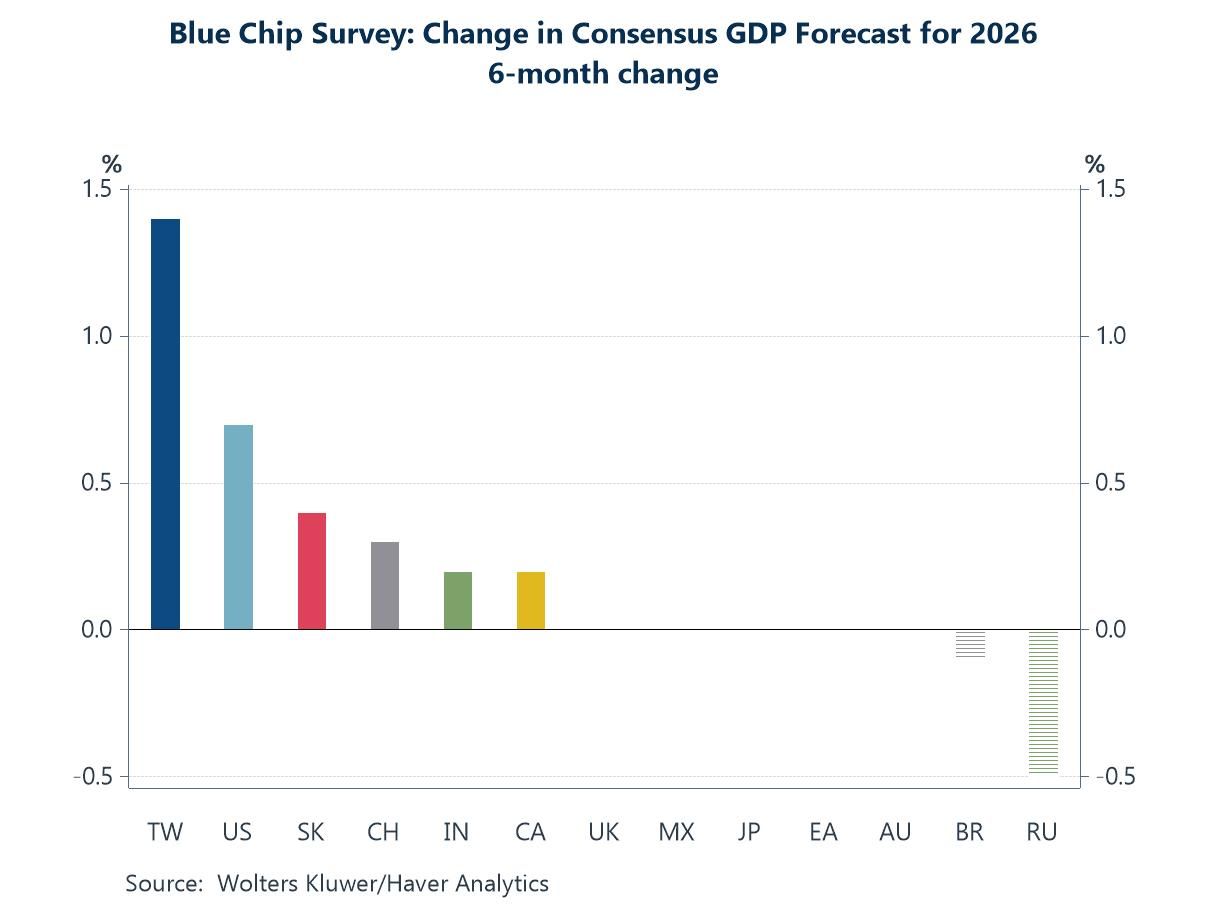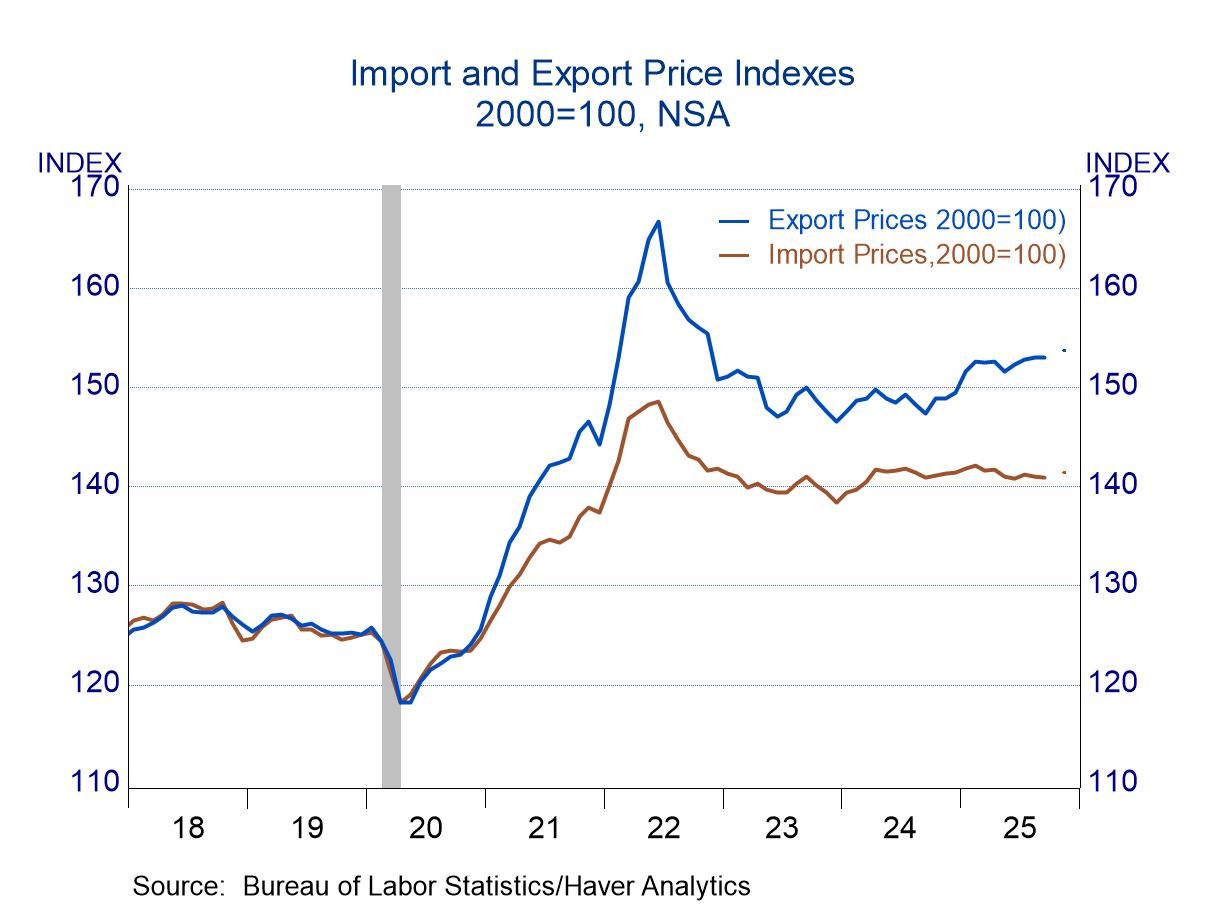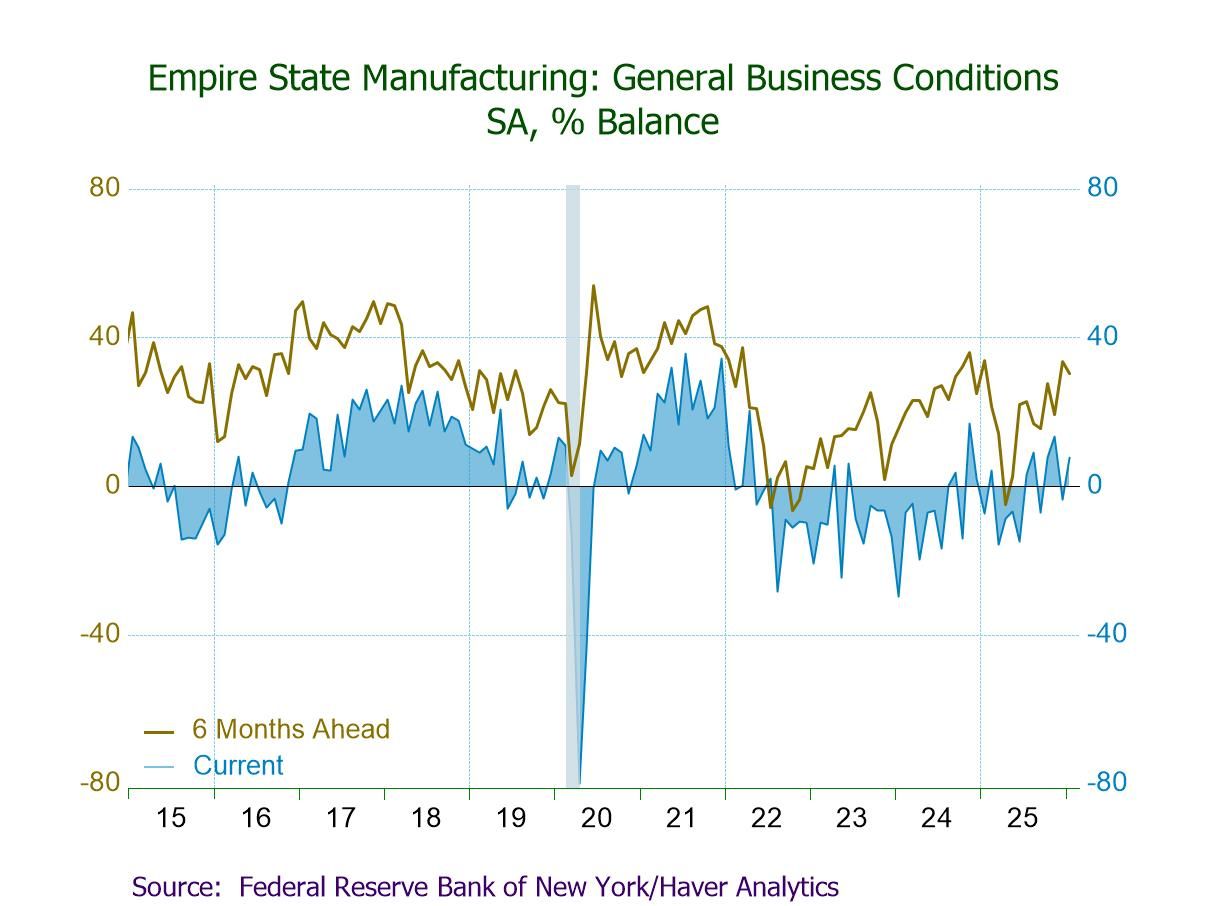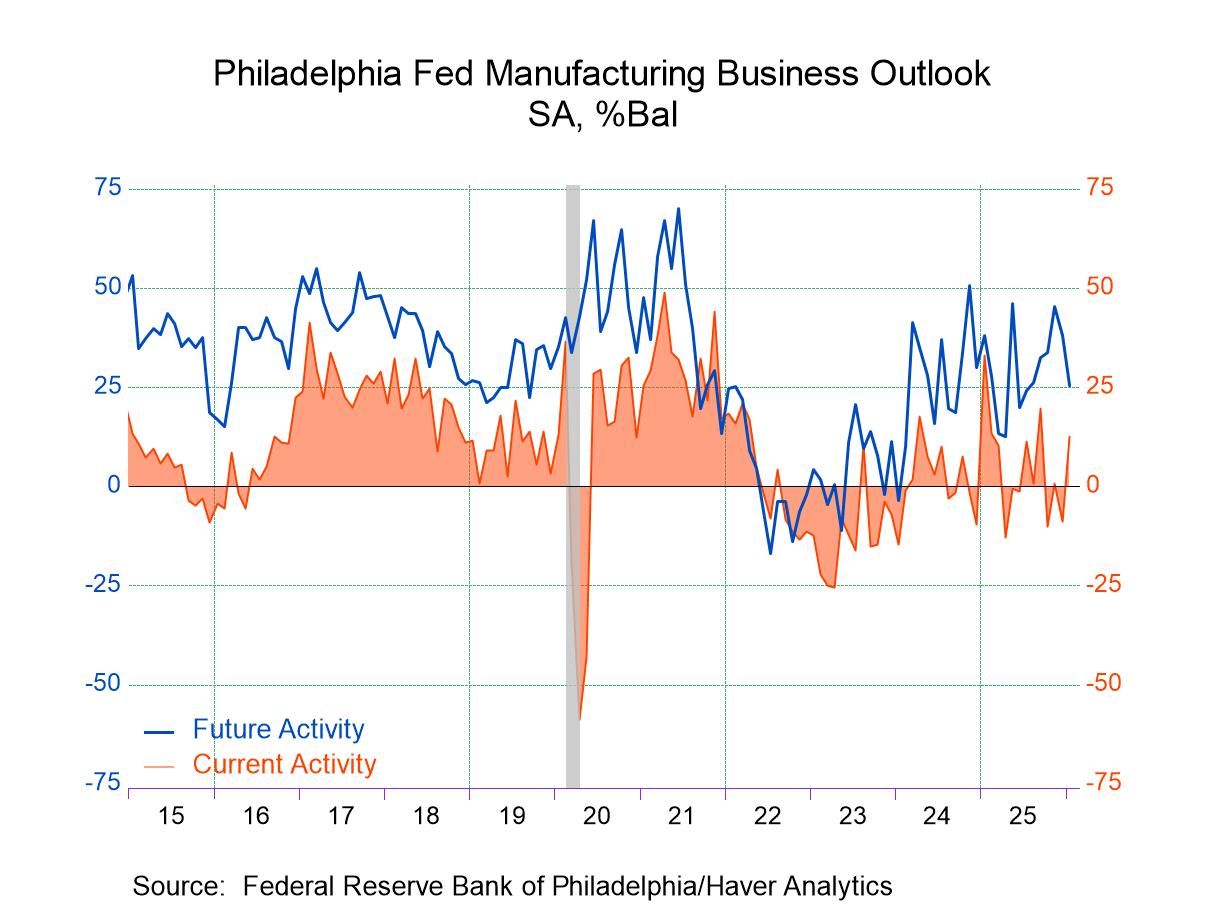 Global| Nov 27 2009
Global| Nov 27 2009U.S. Durable Goods Orders Slip M/M But Trend Improves
by:Tom Moeller
|in:Economy in Brief
Summary
Improvement in factory sector activity was apparent in the latest orders figures. Durable goods orders slipped 0.6% in October after an upwardly revised 2.0% rise during September. Despite the monthly setback, however, the [...]
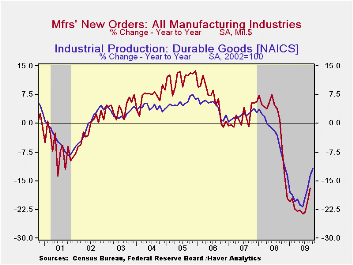 Improvement in factory sector activity was apparent in the
latest orders figures. Durable goods orders slipped 0.6% in October
after an upwardly revised 2.0% rise during September. Despite the
monthly setback, however, the deterioration in factory sector activity
has abated. That is consistent with the recent monthly ISM reports on
manufacturing sector activity. Durable goods orders have risen 5.0%
from their March low and the y/y decline is less than half the worst of
this past winter.
Improvement in factory sector activity was apparent in the
latest orders figures. Durable goods orders slipped 0.6% in October
after an upwardly revised 2.0% rise during September. Despite the
monthly setback, however, the deterioration in factory sector activity
has abated. That is consistent with the recent monthly ISM reports on
manufacturing sector activity. Durable goods orders have risen 5.0%
from their March low and the y/y decline is less than half the worst of
this past winter.
Much of the recent improvement has been due to the
transportation equipment sector where orders rose 1.5% last month
(-13.6% y/y) after an upwardly revised, strong September increase.
Higher orders for aircraft & parts account for most of the
recent gains. Excluding the transportation equipment sector altogether,
orders fell 1.3% during October but they have risen 4.3% from their
April low.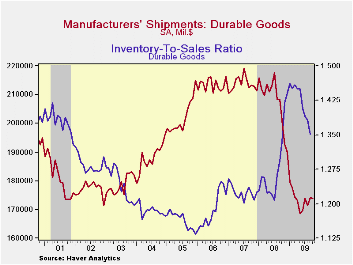
Primary metals orders also continued their recovery with a 3.6% October increase (-13.7% y/y) and they have risen one-quarter from the March low. A 2.7% rise in electrical equipment orders also helped last month's total. They have risen slightly from the spring low after falling by one-third from last year's high. Showing tenuous improvement have been orders for computers & related equipment. While orders remain off their recession low, the gain stalled during the last three months. The same is true for machinery orders.
The capital goods sector also has improved as indicated by a slower year-to-year rate of decline. However, declines in nondefense capital goods orders less aircraft during three of the last four months raises uncertainty about the momentum behind the trend.
Shipments of durable goods slipped 0.2% during October following increases during two of the prior three months. Nevertheless, the y/y decline eased to 13.6% from 20.2% at its worst this spring. The improvement has been paced by firm monthly gains in shipments of metals (-27.9% y/y) but the machinery (-22.9% y/y) and electrical equipment (-20.3% y/y) sectors continue to lag.
Perhaps the shedding of inventories of durable manufactured goods is coming to its end after nearly a year of correction. Inventories were essentially unchanged during October after steep declines in each of the prior nine months. The shedding of inventory has been broad-based led by an 18.6% decline this year in the metals area, a 14.4% drop in computer inventories, a 14.3% drop in motor vehicles and a 13.6% decline in electrical equipment. The recent decline in inventories has been successful in lowering the ratio to shipments to its lowest since November of last year.
The durable goods figures are available in Haver's USECON database.
| NAICS Classification (%) | October | September | August | Y/Y | 2008 | 2007 | 2006 |
|---|---|---|---|---|---|---|---|
| Durable Goods Orders | -0.6 | 2.0 | -2.7 | -11.9 | -5.8 | 1.4 | 6.2 |
| Excluding Transportation | -1.3 | 1.8 | -0.5 | -11.3 | -1.2 | -0.3 | 9.1 |
| Nondefense Capital Goods | 1.2 | 3.2 | -7.8 | -14.1 | -6.8 | 3.5 | 9.4 |
| Excluding Aircraft | -2.9 | 2.6 | -1.0 | -12.8 | -0.3 | -2.7 | 10.7 |
Tom Moeller
AuthorMore in Author Profile »Prior to joining Haver Analytics in 2000, Mr. Moeller worked as the Economist at Chancellor Capital Management from 1985 to 1999. There, he developed comprehensive economic forecasts and interpreted economic data for equity and fixed income portfolio managers. Also at Chancellor, Mr. Moeller worked as an equity analyst and was responsible for researching and rating companies in the economically sensitive automobile and housing industries for investment in Chancellor’s equity portfolio. Prior to joining Chancellor, Mr. Moeller was an Economist at Citibank from 1979 to 1984. He also analyzed pricing behavior in the metals industry for the Council on Wage and Price Stability in Washington, D.C. In 1999, Mr. Moeller received the award for most accurate forecast from the Forecasters' Club of New York. From 1990 to 1992 he was President of the New York Association for Business Economists. Mr. Moeller earned an M.B.A. in Finance from Fordham University, where he graduated in 1987. He holds a Bachelor of Arts in Economics from George Washington University.



